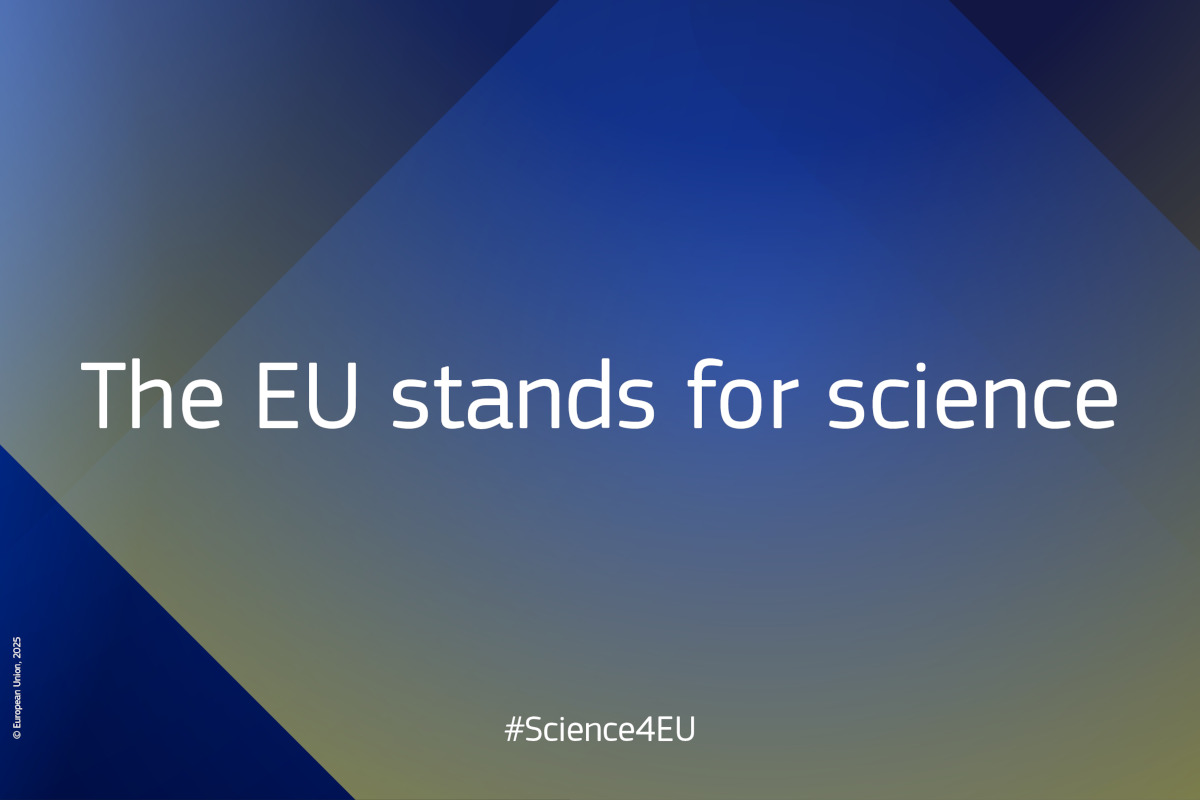Farmers and foresters across Europe are sharing sustainable bio-based practices and technologies, showing how local knowledge and European collaboration can help drive the transition to a greener future.
Special series

Science4EU
The Science4EU campaign shows how the EU stands for science. It shines a spotlight on the scientists, researchers, and innovators working with EU support to improve our lives and shape a better future for everyone.
Do you also stand for science?
Podcast
Media AV Portal Audio
More stories

An EU-funded research initiative is guiding Europe’s coal regions through the transition to renewable energy, while focusing on job creation and clean energy.
Most popular
-
1By Michaela Nesvarova
-
2
-
3By Michaela Nesvarova
-
4By Sofia Sanchez Manzanaro
-
5
Top videos
Turning local know-how into European solutions for smarter bio-based farming
25 July 2025
Fighting fire with innovation: a pan-European push to tackle extreme wildfires
23 July 2025
Past articles
Energy efficiency and agriculture are two areas where EU research and innovation could make a significant impact on climate change, and major breakthroughs could happen in a very short period of time, Dr Rajendra Pachauri, the chair of the Intergovernmental Panel on Climate Change (IPCC), told Horizon following a meeting at the European Parliament in Brussels.
Curiosity, creativity and tenacity are three vital qualities for young scientists, says 18-year-old Lithuanian Matas Navickas, who won third prize at the European Union Contest for Young Scientists in September for his work creating a flowering apple tree in a test tube.
Could machines, technologies and devices made with micro-organisms and bacterial cells soon be a part of our daily lives? Will modified cells be a part of the medical treatments we take, the food we eat, the fuels we use?
Microbes that produce electricity by feeding on waste could be available within a decade, thanks to cutting-edge technology which is able to adapt the way that organisms function.
Rice, olives, tomatoes – healthy foods are getting a boost as scientists find ways to enhance ingredients that can keep the doctor away.
Smart control systems and combination batteries could help give reassurance to range-conscious electric car drivers.
Cryopreservation, in which organic material is stored at extremely low temperatures, may not yet have reached the science fiction dream of placing people in suspended animation, but technology inspired by hard-to-freeze fish is helping make it an effective way of preserving genetic plant material for future use.
A machine that connects the unconscious mind to the vastly expanding world of big data could help humans navigate the boom in data generated by a widening source of technological devices and tools.
Five Ebola research projects, including a large-scale clinical trial of a potential vaccine, will receive EUR 24.4 million funding as the European Commission activates an emergency fast-track procedure that enables it to release research cash in urgent situations, such as an epidemic.
Researchers have discovered how soluble proteins produced by the Ebola virus cause damage to blood vessel walls and contribute to the internal bleeding characteristic of the disease, opening up a new avenue for possible treatment.
Curiosity, creativity and tenacity are three vital qualities for young scientists, says 18-year-old Lithuanian Matas Navickas, who won third prize at the European Union Contest for Young Scientists in September for his work in creating a flowing apple tree in a test tube.
A machine that connects the unconscious mind to the vastly expanding world of big data could help humans navigate the explosion in data generated by a boom in computing technology.
Using a protein taken from nature, scientists have made artificial leaves that can harvest energy faster than natural ones, and the ultra-lightweight material opens up the possibility of wearable technology and paint-on solar cells.
Responsive food packets could warn us when frozen food has got too warm, or even if meat has gone off, and they could be on supermarket shelves within the next few years.
Professor Jean Tirole from the Toulouse School of Economics in France has been awarded the top prize for economics by a Nobel committee for his work on how to regulate industries that are dominated by a few powerful firms.
Young people have great ideas but often they need to be informed that EU research funding is available, according to Pierre-Yves Cousteau, the president of Cousteau Divers and son of the marine conservationist Jacques Cousteau.
Fusion research institutes from around Europe gathered in Brussels to mark the signing of a grant between the EU and the EUROfusion consortium that will help keep Europe’s lead in fusion energy research.
A Romanian-born German has won a share of the Nobel Prize in Chemistry for a technique that enables reseachers to peer into the nanoworld of individual molecules.
An EU-funded chemist has won a share of the Nobel Prize in Chemistry for a technique that enables researchers to peer into the nanoworld of individual molecules.
‘I would like to show that when one uses novel concepts or thinks outside the box, there is no limit to yield ... the limit is just in our head,’ according to Professor Dani Zamir from the Hebrew University of Jerusalem in Israel.




























